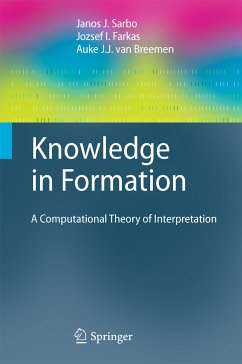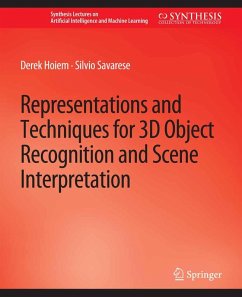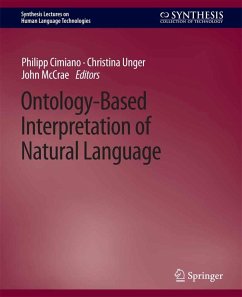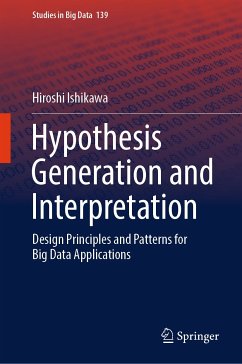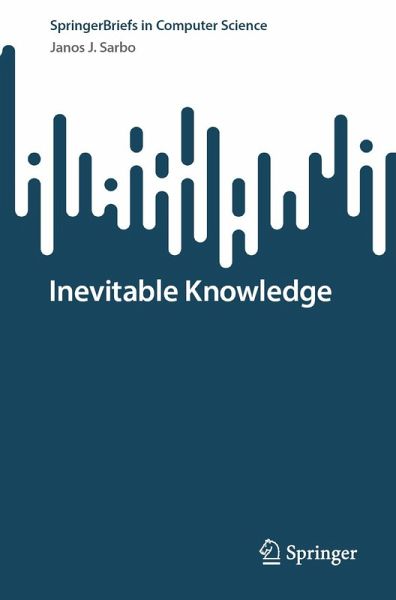
Inevitable Knowledge (eBook, PDF)
Versandkostenfrei!
Sofort per Download lieferbar
40,95 €
inkl. MwSt.
Weitere Ausgaben:

PAYBACK Punkte
20 °P sammeln!
The Holy Grail of AI is artificial generative intelligence, a computer that can think human-like. However, human thinking is qualitatively more complex than computer calculations. So, the ultimate goal of AI cannot be achieved.Not quite. This book shows that a model of human-like, meaningful processing can be introduced based on a theory of cognition (how human processing can be abstracted in a series of events), semiotics (what signs are and what kind of distinctions can be communicated by signs), and computer science (how all this can be realized as a procedure). The emerging model offers a ...
The Holy Grail of AI is artificial generative intelligence, a computer that can think human-like. However, human thinking is qualitatively more complex than computer calculations. So, the ultimate goal of AI cannot be achieved.
Not quite. This book shows that a model of human-like, meaningful processing can be introduced based on a theory of cognition (how human processing can be abstracted in a series of events), semiotics (what signs are and what kind of distinctions can be communicated by signs), and computer science (how all this can be realized as a procedure). The emerging model offers a solution to the problem of artificial intelligence, not by itself, but in collaboration with the human agent by augmenting its intelligence. But there is more to it than that. Because of the fundamental nature of signs, the semiotic concept of meaning can be transformative for AI research.
The book comprehensively covers several applications, including language processing, analyzing integrative negation processes, and solving mathematical problems. It delves into the intricate characteristics of the meaningful processing problem and the fascinating journey that led to its solution. The book provides insight into the historical background of the problem and the solution, enriching the reader's understanding and engagement. The text is self-contained. All necessary technical terms are explained.
Not quite. This book shows that a model of human-like, meaningful processing can be introduced based on a theory of cognition (how human processing can be abstracted in a series of events), semiotics (what signs are and what kind of distinctions can be communicated by signs), and computer science (how all this can be realized as a procedure). The emerging model offers a solution to the problem of artificial intelligence, not by itself, but in collaboration with the human agent by augmenting its intelligence. But there is more to it than that. Because of the fundamental nature of signs, the semiotic concept of meaning can be transformative for AI research.
The book comprehensively covers several applications, including language processing, analyzing integrative negation processes, and solving mathematical problems. It delves into the intricate characteristics of the meaningful processing problem and the fascinating journey that led to its solution. The book provides insight into the historical background of the problem and the solution, enriching the reader's understanding and engagement. The text is self-contained. All necessary technical terms are explained.
Dieser Download kann aus rechtlichen Gründen nur mit Rechnungsadresse in A, B, BG, CY, CZ, D, DK, EW, E, FIN, F, GR, HR, H, IRL, I, LT, L, LR, M, NL, PL, P, R, S, SLO, SK ausgeliefert werden.



